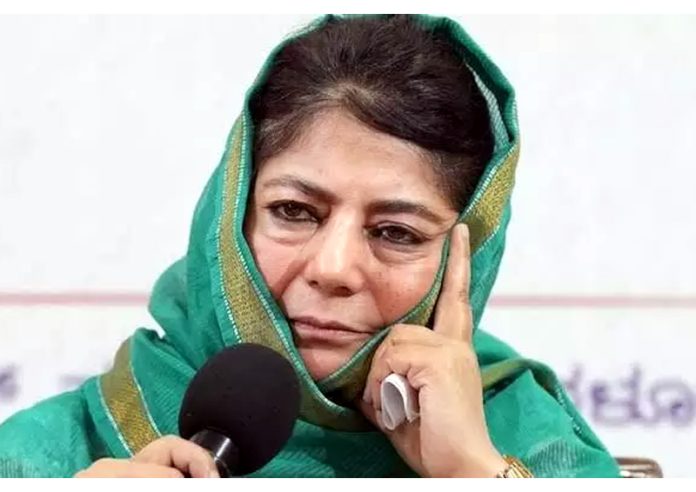Excelsior Correspondent
SRINAGAR, Aug 7: People’s Democratic Party president, Mehbooba Mufti, today emphasized that India should learn from Bangladesh to avoid pushing the youth, particularly in Jammu and Kashmir, to the wall.
Speaking on the sidelines of a party function at the headquarters in Srinagar, Mufti said that the country must understand from Bangladesh that tyranny is unsustainable and oppressive policies test people’s tolerance.
“Eventually, like Sheikh Hasina, leaders may have to flee their own country. This is a crucial lesson for our nation, especially for Jammu and Kashmir, where youth face numerous issues,” she said.
Mufti highlighted the importance of addressing the concerns of India’s large and sensitive youth population. “When we disappoint them and pressure them from all sides, it leads to severe consequences. On one hand, inflation is skyrocketing; on the other hand, there is rampant unemployment and decisions are made that work against them. How long can educated youth continue to beg?” She questioned.
She criticized the country’s approach to unemployment and schemes like Agniveer, stating that they contradict the basic principles of the army. “Additionally, while reservation policies benefit the weaker sections of society, they should align with the population makeup. Reservations should be based on population demographics to prevent injustice to those in the open merit category. Reservations should not come at the expense of the open category,” she added.
Mufti expressed concern over the rising number of youth suicides and widespread drug addiction. “The main reason behind this is that youth feel helpless, similar to the situation in Bangladesh. Moreover, the pressure and injustice of booking youth under the PSA and not allowing them to express themselves exacerbate the problem,” he said.
She urged the country to address the issues facing its youth, describing them as the nation’s future and assets. “When we push them to the edge, the consequences become apparent, as seen in Bangladesh. When injustice and oppression become intolerable, people react, just as we are witnessing in Bangladesh,” she said.


